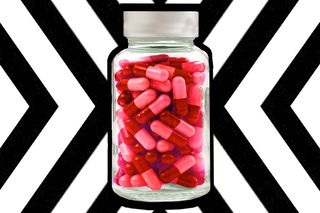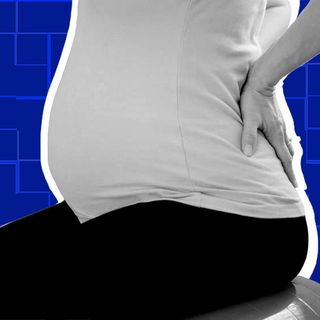
Are Probiotics Good for You? New Research Says ‘Meh.’
Another nutritional supercraze bites the dust.

In recent years, probiotics have been crammed into everything from chocolates to pickles to hand lotions and baby formula. But new research is suggesting the answer to “Are probiotics good for you?” might not be the resounding “Yes!” these products would have us believe. In fact, taking probiotics is likely ineffective for many people, and may even lead to surprisingly negative side effects for others.
“Contrary to the current dogma that probiotics are harmless and benefit everyone, these results reveal a new potential adverse side effect of probiotic use with antibiotics that might even bring long-term consequences,” says the studies’ senior author, Eran Elinav, an immunologist at the Weizmann Institute of Science in Israel.
Probiotics are microorganisms — yeast and ‘good bacteria’ — that live in our guts and aid the digestion of food and absorption of nutrients. The goal of taking oral probiotics is typically to maintain this population of good bacteria, or repopulate it after something, like a course of antibiotics, kills it off.
For some people, this is exactly what happens: gut bacteria is maintained or repopulated with the help of standard, over-the-counter oral probiotics. For many others, however, the benefits of probiotics don’t manifest. In fact, in these people, the first study concluded, the digestive tract actively works against the proliferation of these oral probiotics.
“People have thrown a lot of support to probiotics, even though the literature underlying our understanding of them is very controversial; we wanted to determine whether probiotics such as the ones you buy in the supermarket do colonize the gastrointestinal tract like they’re supposed to, and then whether these probiotics are having any impact on the human host,” Elinav says. “Surprisingly, we saw that many healthy volunteers were actually resistant in that the probiotics couldn’t colonize their GI tracts.”
The studies, published in the journal Cell, were small, including fewer than 50 participants combined. But their level of insight outstrips the number of participants by going straight to the source: Previous studies that have been used to back the positive effects of probiotics drew their conclusions from microbes present in stool samples. These two new studies, however, drew their conclusions based on samples from the gut itself. The researchers also took stool samples and found that the microbes present in stools often weren’t present inside the body — suggesting oral probiotics may often be simply flushed out of the system.
“Although all of our probiotic-consuming volunteers showed probiotics in their stool, only some of them showed them in their gut, which is where they need to be,” says study author Eran Segal, also of the Weizmann Institute. “If some people resist and only some people permit them, the benefits of the standard probiotics we all take can’t be as universal as we once thought. These results highlight the role of the gut microbiome in driving very specific clinical differences between people.”
The second study involved testing the merit of taking probiotics as a follow up to antibiotics, in order to rebuild gut microbiota. They found that once antibiotics cleared a person’s system, oral probiotics could easily colonize the gut — but this colonization prevented, rather than assisted, a person’s normal microbiome from repopulating, as well as kept the genetic function of their typical microbes from returning to normal.
Researchers say the results, far from discouraging the beneficial potential of probiotics, opens the door to more tailored treatments that are more effective than the one-size-fits-all approach toward probiotic consumption that is standard today.
Related


More Than Half of Women Surveyed Say Their Gynacs Haven’t Mentioned Breast Exams
